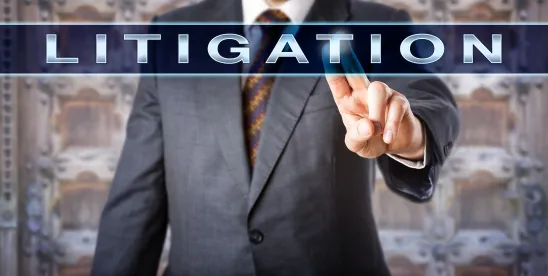On September 27, 2024, the United States Court of Appeals for the First Circuit (the “First Circuit”) entered judgment in favor of 7-Eleven, Inc. (“7-Eleven”) in Patel v. 7-Eleven, Inc., putting to rest a class action lawsuit 7-Eleven has been defending for more than seven years regarding allegations that its franchisees were actually employees of 7-Eleven, based on the application of the Massachusetts independent contractor statute.
The First Circuit entered judgment after the Supreme Judicial Court of Massachusetts (the “SJC”) issued a decision on September 5, 2024 holding that the 7-Eleven franchisees did not establish the threshold requirement to show that the so-called “ABC Test” applied to 7-Eleven franchisees—that they performed any services for their franchisor, 7-Eleven. The outcome of this case is likely to have a significant impact on employers across Massachusetts and may influence how courts in the more-than-30 other states that have adopted a similar or identical version of the ABC Test address challenges to employee classification in the franchising context.
Background
A group of franchisees initiated the above-referenced lawsuit against 7-Eleven in June 2017, alleging 7-Eleven misclassified them as independent contractors, rather than employees, in violation of Massachusetts’ independent contractor statute (Mass. Gen. Laws Ann. ch. 149, § 148B). As opposed to the standard independent contractor dispute, where a person performing work for or on behalf of a company claims that they are an employee and not an independent contractor, the plaintiffs in this case had purchased franchises from the franchisor, 7-Eleven, but were claiming that the franchisor was actually their employer, and had misclassified them as employees.
The Massachusetts independent contractor statute, also known as the ABC Test, states that “an individual performing any service” for an employer is presumed to be an employee unless the alleged employer rebuts the presumption by establishing the following three prongs:
- the individual is free from control and direction in connection with the performance of the service, both under his contract for the performance of service and in fact;
- the service is performed outside the usual course of the business of the employer; and,
- the individual is customarily engaged in an independently established trade, occupation, profession or business of the same nature as that involved in the service performed.
A federal district court in Massachusetts originally ruled in favor of 7-Eleven in September 2020, reasoning that the ABC Test did not apply to the franchisees’ misclassification claims because the Federal Trade Commission’s (“FTC”) Franchise Rule preempted the Massachusetts statute. On appeal, the First Circuit certified the issue to the SJC, which subsequently held that the Massachusetts independent contractor statute applied to the franchisor-franchisee relationship and did not conflict with the FTC’s Franchise Rule.
Thereafter, the First Circuit remanded the case to the district court, which again ruled in favor of 7-Eleven in September 2022. The district court declined to assess whether 7-Eleven could establish the three prongs of the ABC Test, reasoning that the franchisees were not able to satisfy the test’s threshold inquiry of whether they performed services for 7-Eleven. Rather, the court explained, it was 7-Eleven that rendered services to the franchisees by providing training programs, granting operating licenses, permitting access to bookkeeping records and payroll software, advertising services, and both maintaining and repairing equipment. The court further highlighted that 7-Eleven did not pay the franchisees for anything, including a salary, but instead permitted franchisees to withdraw weekly or monthly draws from their stores’ gross profits.
The franchisees appealed the district court decision, arguing that they did in fact perform services for 7-Eleven by fulfilling various contractual obligations set forth in the parties’ franchise agreement. The franchisees emphasized in the appeal that the degree of success with which they performed their contractual obligations directly impacted the revenue 7-Eleven received, which was a percentage of the franchise’s gross profits. The First Circuit certified to the SJC the question of whether this type of arrangement meant that the franchisees performed services for 7-Eleven within the meaning of the Massachusetts independent contractor statute.
On September 5, 2024, the SJC held that the franchisees who had bought franchises from 7-Eleven did not perform any services for the franchisor, 7-Eleven. The SJC explained that adopting the franchisees’ position would result in all typical franchise relationships being deemed “presumptive employment relationships,” which the SJC rejected as an “unreasonable construction.” The SJC elaborated that “[s]uch a sweeping classification of independent owners of franchises as presumptive employees of their franchisors does not further the ‘main object to be accomplished’ of the independent contractor statute: ‘to protect workers by classifying them as employees, and thereby grant them the benefits and rights of employment, where the circumstances indicate that they are, in fact, employees.’”
Accordingly, the SJC concluded that the franchisees could not satisfy the threshold requirement of the ABC Test because they did not perform services for 7-Eleven. The SJC went on to explain that the franchise relationship at issue did not indicate that the franchisees were employees of 7-Eleven because they were engaged in a “business-to-business relationship in which [they chose] to operate their independent businesses using the 7-Eleven business format franchise, [paid] 7-Eleven for that use, and [were] to abide by the conditions that maintain the integrity of the 7-Eleven brand consistent with the requirements of Federal law.” The First Circuit subsequently directed the parties to show cause why the district court’s grant of summary judgment entered in favor of 7-Eleven should not be summarily affirmed. After both parties acknowledged that there existed no such reason in light of the SJC’s opinion, the First Circuit affirmed the district court’s entry of summary judgment for 7-Eleven.
Takeaways
The final disposition of Patel sheds needed clarity on the state of employee classification laws, both in the context of franchisee-franchisor relationships and to putative employee and independent contractor relationships that may be analyzed under the ABC Test, variants of which have been adopted by more than 30 states to date. Notably, the language from Massachusetts’ statute mirrors the language in the statutes of other states that have likewise adopted the ABC Test, which generally presumes that an individual is an employee unless the employer demonstrates (A) absence of control over the individual by the employer; (B) the individual performs work or services outside the usual course of the business of the employer; and (C) the individual is customarily engaged in an independently established trade, occupation, or business of the same nature as the work performed for the hiring entity.
Though employers have found the ABC Test, which continues being adopted by an increasing number of states, more onerous than the common law independent contractor test, the Patel decision offers potential security for businesses operating within a franchise structure. Further, the case provides useful guidance for employers regarding the types of considerations that the Massachusetts courts and the First Circuit relied upon in holding that the franchisees did not perform any services for 7-Eleven, which allowed 7-Eleven to avoid application of the ABC Test in the first place, rather than having to justify why or how it satisfied each of the three prongs.
Employers both in Massachusetts and in other states that have adopted variants of the ABC Test should be cognizant of these considerations, as other courts may look to the Patel decision for guidance in deciding similar issues in non-traditional employee versus independent contractor analyses. These considerations may be particularly useful to bear in mind in drafting franchise agreements, developing franchisee-franchisors relationships, and auditing existing franchisee-franchisor or employee/independent contractor relationships.






 />i
/>i

